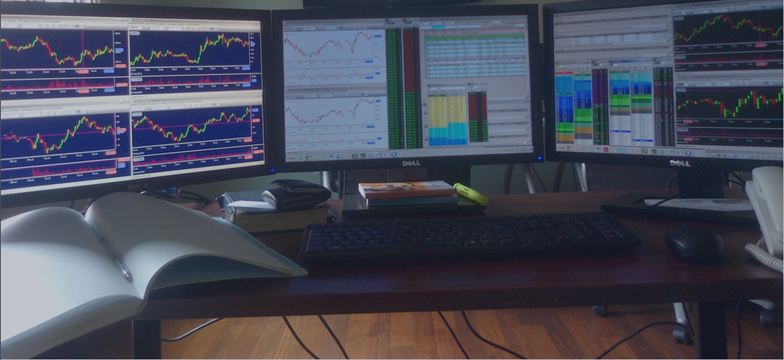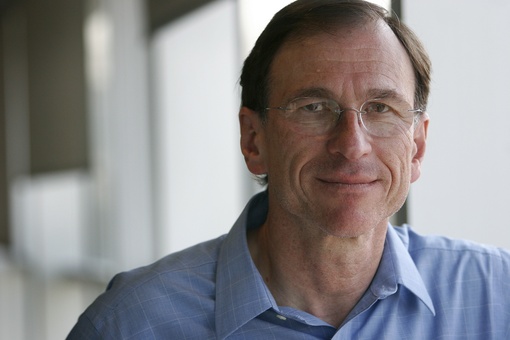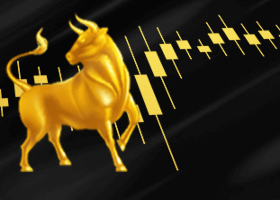
An Interview with Jack Schwager - Characteristics of a Super Trader
Jack Schwager is a recognised expert on markets and trading who has authored a number of very well known trading books. Among them are 'Market Wizards' and 'New Market Wizards' where he interviewed many of the world's top traders discussing the secrets of their success and how they amassed millions of dollars.
Among the many trading legends he's interviewed are: Richard Dennis, Paul Tudor Jones, Ed Seykota, Jim Rogers, Bill Lipschutz and William Eckhardt.
These two books are avidly read by traders all over the world keen to discover what makes super traders tick.

JS: A good analogy is that of a marathon runner. With a lot of training and effort almost anyone can learn to run a marathon. But it's impossible to do if you're not trained. And only a tiny fraction will run in what is considered to be a world-class time.
So bringing that analogy to trading, yes it is possible to learn to trade profitably. But to learn it to the point of becoming superlative – I don't think that's possible unless you have exceptional talent.
JP: You've talked with some of the world's greatest traders and from your discussions with them what are the characteristics which make them 'great'?JS: It's difficult to answer that question in the time we have, but to give you an example, great traders are extremely flexible. They can very easily change opinion and go from bullish one second to bearish the next. So they don't become wedded to a particular position – they change it as they see fit.
This is contrary to human nature, which is to hope you're right and stick to your opinion and to try to find evidence that you're right. It's not in human nature to admit you got it wrong and to change your position.
You find that so many of the characteristics that make great traders are contrary to human nature.
JP: It's interesting that you talk about flexibility and being willing to change your position, because that runs contrary to another piece of trading advice, which is to stick with your systemJS: I was mainly talking about discretionary traders. But this can apply even with traders using a system. It is sometimes a case of admitting that the system isn't performing as expected or doesn't work any more maybe because the market has changed. So good systematic traders adapt their systems when necessary.
It's a fine line between sticking with your system and being adaptable.
JP: Is there a personality type for great traders – i.e. do they tend to be extrovert as often portrayed by Hollywood or are they introvert / geeks as often characterised by the trade press?JS: Actually the answer to that is very clear. The range of personalities among great traders is as wide as you can imagine. So yes you have your extreme extroverts and introverts, you have people with PhDs in physics and maths and some who barely finished high school.
Some are nice guys some aren't, others are very easy going and others are very rigid.
Basically, there is no personality type that defines a successful trader.
JP: At some point in a trader's career they can go through quite bad demoralising loosing streaks – how do great traders handle that?JS: The advice I've heard more than once is that you can't try harder to make it right when things are going wrong. When it's not working and you're not in tune with the market there's no point trying harder to make it work. That might work in some professions or jobs, but not in trading.
So when you go through that bad patch the best advice is to close out all your positions and go on holiday. Then come back and gradually build up your trading again.
You have to walk away from it for a while and clear your mind. But in trading it's more than that. It is also about regaining your objectivity.
JP: It's almost folklore in some circles that becoming a great trader involves getting wiped out or suffering some huge set back at some point – was that generally the case with the great traders you interviewed?JS: Some did go through that, but others didn't. Some were successful from the beginning and others blew up multiple times on their way to mastering trading.
JP: Do you think those who had a smoother time becoming top traders, i.e. avoiding blowing themselves up, did more preparation and studying before becoming traders?JS: I think it's just a difference of approach. Some people have an innate need to apply risk controls and that stops them from blowing themselves up. Whereas other people start out not understanding the risks and have to learn about them on the way.
JP: Reading some of your books such as Market Wizards many of the traders you profiled come over as very conservative in their approach to trading. So for instance they'll typically risk less than 5% of their capital on a trade.JS: Actually most will risk far less than 5% on one trade. Many risk less than 1% on any single trade. That's true because risk management is such an essential part of trading.
You'll find that the vast majority of top traders have a robust adherence to their risk management strategies.
JP: Why do you think so many people find it so hard to master trading?JS: Trading involves transactions costs, which includes not only commissions but also slippage, and if you don’t have any particular edge, then the mathematical probabilities overwhelming point to you losing.
Trading without an edge is very much like playing roulette where your chances of winning are less than 50/50. Sure you may have some lucky runs for a while, but you are guaranteed to lose if you play long enough.
Secondly, it's actually worse than that. As Bill Eckhardt who was profiled in New Market Wizards said, people will actually do worse than random because human nature is so poorly tuned to making the right decisions for tasks such as trading.
So to succeed you need to develop an edge. That's not all that easy when everyone else is trying to do the same thing and some of them are among the most brilliant minds on the planet.
JP: Are there big differences between how hedge funds and individuals trade the market (given the former have more resources)?JS: I don't draw much of a distinction. Hedge funds can develop quite complex systems as can individuals, and anyway hedge funds are made up of individuals.
JP: Technical analysis is a major driver of activity in the forex market – in your interviews with top traders are there any particular tools that keep getting mentioned?JS: Indicators come up as a key input in very few of the interviews I've done. What does come up repeatedly is chart analysis, which is more of an art than a science. However, these traders don't always interpret chart patterns in the classical sense.
Some of the systems these traders use are fundamental, but I would say most are technical.
JP: I guess it is nearly all technical analysis with the forex traders you've spoken with?JS: Yes and no. It's common for a forex trader to have broad view of where a currency is moving and then trade in that direction using some technical analysis inputs. Their basic biases on market direction can be informed by fundamentals, such as economics and central bank activity.
JP: What would you advise a novice trader to trade?JS: I would advise them not to assume any particular trading strategy is right or better for them.
I think it is a matter of personal discovery. Because what works for one person is not going to work for someone else. Some people will gravitate towards fundamentals, others to technicals, and still others to both. Some people will prefer short-term positions over long-term and vice versa. Some people will be more inclined to trade multiple markets, others just one market.
There are a great many possible combinations of trading elements, and people coming into the market first need to discover what's right for them. They can figure that out by reading books, then observing the market and then getting some experience. From there they can develop their own approaches.
But when starting to trade, new traders should start out with very little money, or even paper trade, and then gradually increase their positions as they become successful.
JP: Some people believe you should go straight to trading with actual money because it better replicates the reality of trading than paper trading – what do you think about that argument?JS: I think you can use both approaches simultaneously. Paper trading lets you take bigger positions and in more markets. With your own money you might be restricted in what you can do because you don't have much capital. The benefit of paper trading is that you can test your ideas out.
But paper trading is not a substitute for trading with real money, because with money on the line you'll be inclined to make different decisions.
JP: Do you think trading longer-term positions is easier than trading shorter ones as some traders have claimed?JS: My own belief is that if you're doing something like trend following, longer-term systems tend to work better. However, even though longer-term trading systems have tended to do better than the shorter time frame ones, they are harder to live with.
Longer term systems can go through very difficult periods, the whipsaws can be much worse, and you can give back large profits or run up big losses. It's the flip side of the bigger profits these systems tend to generate.
JP: Would you say that most successful traders use trending systems?JS: No. It's just one style. And systematic trend traders are rarely the ones with the great track records. They may have really high returns in some years and even do well over the long-term, but from the perspective of return on risk they don't make it into the super trader category.
JP: So what kind of systems do the super traders tend to use?JS: My belief is that those with really superior track records are usually – though there are exceptions – discretionary traders.
JP: Just to define a discretionary trader – that is someone making trading decisions not based on a system?JS: Yes that's right. They're not using an automated system.
JP: So discretionary traders are people who have become so good that they've gone beyond needing to rely on a trading system?JS: Actually, I would disagree with that. These are people who have very strong risk management strategies, which helps keep them out of trouble.
Following a system might be a good solution for most people, but it is definitely not a better approach.
I think whether you are a discretionary or systematic trader goes to the heart of your inner personality and using the style that suits you.


